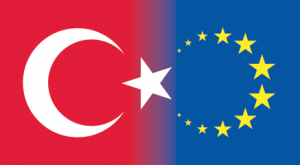University of Technology of Compiègne (UTC)

The University of Technology of Compiègne (UTC) is a public higher education institution established in 1972 that combines all the assets and advantages of a University with those of an engineering “Grande Ecole” (France’s top ranking engineering schools). UTC’s main missions are education, research and transfer of technology. It is well integrated within the European system of higher education and it has pursued, since its creation, an ambitious international policy. UTC interacts with society and industry by anticipating the research requirements of companies and by facilitating the professional insertion of its students, thanks to its educational values based on students’ autonomy and its interdisciplinary research.
It is located in the town of Compiegne at a distance of 40 minutes north of Paris (by train). There are 4400 students and 800 full time staff members (390 faculty members) at UTC. The university offers a large range of education and research: computer science, mechanical engineering, biomechanics and bioengineering, cellular and enzyme engineering, urban systems engineering, chemical engineering, humanities applied to research. Research and innovation programs of UTC have been attributed an exceptionally high rating by international juries and French Government committees. 3 innovation thematics are handled through eco-design and man-system technologies: bio-inspired technologies and the bio-economy, clean, safe, integrated ‘smart’ transportation, health-oriented engineering. UTC is a member of Sorbonne University Alliance. Seven leading French higher education establishments and four national research organizations have joined together to form the new Sorbonne University group, a successor to the historic Sorbonne. By bringing together the best talents in a wide array of disciplines, Sorbonne University offers new transversal academic programs and scientific expertise.
Christophe Egles
Lecturer at Tufts University (2005-2010)
Christophe Egles, is since 2010, Professor at Université de Technologie de Compiègne (France). He earned his B.S. in Biochemistry and his Ph.D. in Neurobiology at the University Louis Pasteur in Strasbourg, France.
From 2001 to 2004, he served as Associate Professor at the University Louis Pasteur, School of Dentistry where he studied the biomedical applications of biomaterials modifying cell/support interface. From 2005 to 2010 he joined Tufts University in the Division of Cancer Biology and Tissue Engineering as an Assistant Professor and served as the Associate Director of the Center for Integrated Tissue Engineering.
Read More
He is an expert of tridimensional culture systems for Regenerative Medicine.
His research focuses on regenerative medicine and the various tools available to help the body repair itself. Central to this effort is the development of new biomaterials, biocompatible and bioactive (artificial skin or nerves or ligaments) as well as the fabrication of human tissue equivalent using innovative scaffolds (interpenetrated polymer scaffolds, fibrin containing scaffolds, algae proteins for tissue engineering).
Erwann Guénin
Postdoctoral training at the University College London
Erwann Guénin is since 2019 professor at Université de Technologie de Compiègne (France) at the Transformations Intégrées de la Matière Renouvelable (TIMR) laboratory where he previously occupied the chair “green chemistry and processes”.
E. Guénin holds a PhD in Chemistry from the Université de Bretagne Occidentale. After a postdoctoral training at the University College London and the University Louis Pasteur of Strasbourg, he obtained a position as a lecturer at the University of Paris 13 where he passed his Habilitation to Supervise Research in 2008.
Trained as an organic chemist, he first worked at the Chemistry-Biology interface building tools for transfection and peptide and drug development.
Read More
For several years he has been developing new methodologies for the synthesis and functionalization of nanomaterials using, among others, click chemistry and microwaves.
He also developed green synthesis of biopolymers and bionanocomposites These nanomaterials are then used for green chemistry applications through the development of new nanocatalysts and for biomedical applications.
Isabelle Pezron
Visiting Associate Professor at University of Missouri Kansas City (1997-2001)
Isabelle Pezron, is since 2005, Professor at Université de Technologie de Compiègne (UTC, France). She graduated from Ecole Supérieure de Physique et Chimie Industrielles (ESPCI, Paris) and earned her PhD in the field of biopolymer solutions and hydrogels at the Université Pierre et Marie Curie (Paris 6, France).
She joined UTC as an Associate Professor in 1990, in the Chemical Engineering Department, where she studied the physical chemistry of dispersed systems in relation with industrial processes. From 1997 to 2001 she joined the University of Missouri Kansas City in the Division of Pharmaceutical Sciences as a visiting Associate Professor.
Her research focuses on the substitution of petroleum-based components of formulated products by biobased molecules, on interfacial properties of dispersed systems (emulsions, foams, …), and on the development of structure-properties relationships in order to optimize the performance of end-use products.
Franco Otaola
Franco Otaola went to France in 2015, for a double degree in chemical engineering between the Universidad Nacional del Sur in Argentina and the Université de Technologie de Compiègne.
He realized his internship at Transformations Intégrées de la Matière Renouvelable laboratory, TIMR. After his internship, he worked as a prototyping and R&D engineering for UTEAM, which was his first contact with 3D printing. There he worked in the development of an ergoskeleton with most of the parts conceived for fabrication by Additive manufacturing.
In 2018, Franco began a three-year PhD in the same laboratory as his internship (TIMR), combining his passion for 3D printing with his chemical engineering background. The subject of his PhD is the development of microreactors for flow chemistry, using additive manufacturing and multiphysics simulation as tools for fast development.
His main topics of research are Heterogeneous catalysis, Flow chemistry, Fluid mechanics, Simulation and Additive manufacturing.



“The information and views set out in this web-site are those of the authors and do not necessarily reflect the official opinion of the European Union. Neither the European Union institutions and bodies nor any person acting on their behalf may be held responsible for the use which may be made of the information contained therein.”
